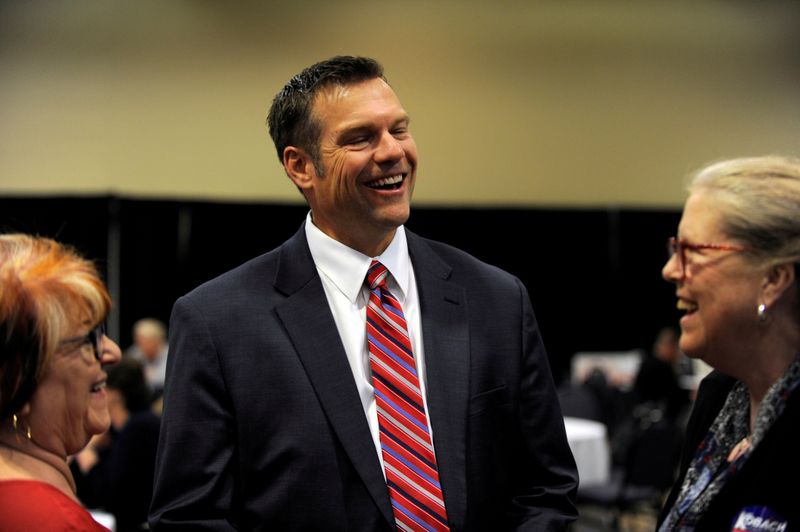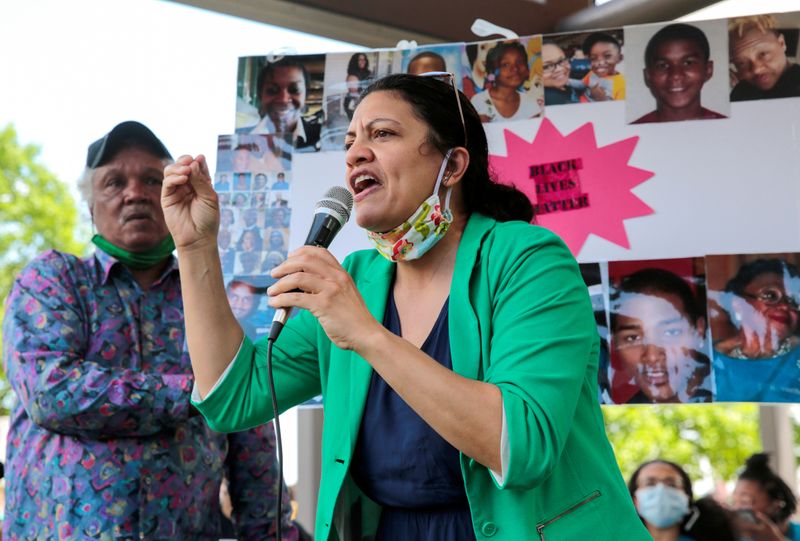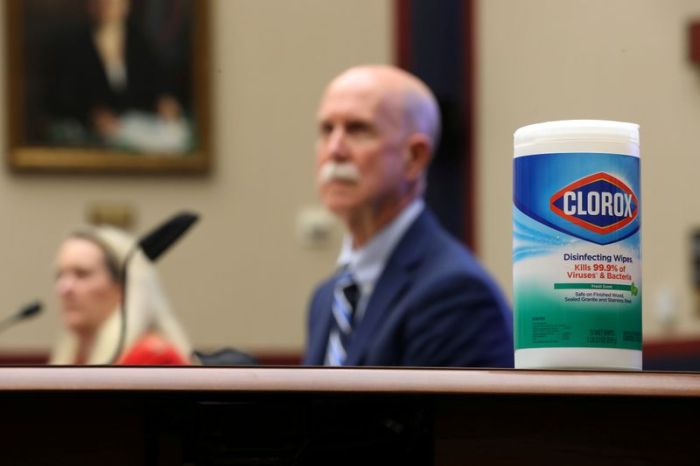WASHINGTON (Reuters) – U.S. Representative Roger Marshall won the Kansas Republican primary for the Senate on Tuesday, defeating anti-immigration firebrand Kris Kobach with the help of the party establishment, which feared Kobach would hurt Republican chances in the fall.
The race was among a number of Congressional primary contests in five U.S. states on Tuesday. In Missouri, incumbent Representative William Lacy Clay was ousted by progressive challenger Cori Bush in the Democratic primary. Bush, a nurse, became a community activist after Black man Michael Brown was fatally shot by police in 2014.
In Michigan, prominent progressive Representative Rashida Tlaib said she was confident she would hold off a challenge from local Black leader Brenda Jones, but results were trickling in.
The outcomes in Kansas, Michigan, Arizona, Missouri and Washington will establish the nominees for the Nov. 3 elections to the House of Representatives and Senate that will determine the balance of power in Congress.
Marshall, 59, was supported by establishment Republicans who feared a polarizing figure like Kobach, a Trump ally, could lose the traditionally Republican seat, giving Democrats a better chance of gaining control of the Senate.
A doctor who has represented western Kansas in the House since 2017, Marshall beat a crowded field. With 3,217 of 3,577 precincts reporting, he had 40% of the vote, with Kobach at 26%, results from the Kansas secretary of state said. A third candidate, Bob Hamilton, had 19%.
Marshall will run in November against the Democratic nominee state Senator Barbara Bollier, a former Republican who won her primary easily.
In an early morning tweet on Wednesday, U.S. President Donald Trump praised Marshall for his “great race” and gave him “my Complete and Total Endorsement”.
“This is not the opponent the Democrats wanted!” Trump added.
Republicans currently have a 53-47 Senate majority, and non-partisan analysts see the competition for Senate control as either a toss-up or slightly favoring Democrats.
The Senate Leadership Fund (SLF), a political action committee aligned with Senate Majority Leader Mitch McConnell, spent $2.1 million in the primary to boost Marshall.
“SLF has been adamant from the day Kobach got in the race that he would endanger Republican control of the Senate majority,” the group said in a statement.
Kobach had advised Trump’s 2016 presidential campaign on immigration.
The Kobach and Tlaib races, as well as Bush’s upset of Clay in Missouri, are testing whether each party will steer to the right or left, or stay closer to the political center.
Bush, 44, won the Democratic primary in Missouri’s 1st congressional district, which includes part of St. Louis, with 48.6% of the vote to 45.5% for Clay, the New York Times said. She was endorsed by the Justice Democrats, the same left-wing group that helped launch progressive Representative Alexandria Ocasio-Cortez in 2018.
Both Bush and Clay are Black, and Clay or his father have represented the district since 1969. In November, Bush will face Anthony Rogers, who won the Republican primary.
“Tonight, Missouri’s 1st has decided that an incremental approach isn’t going to work any longer,” Bush told her supporters. Another Justice Democrat-backed candidate, Jamaal Bowman, recently ousted Representative Eliot Engel in the New York primary.
In Kansas, Representative Steve Watkins of Kansas, who faces felony charges of illegal voting, was defeated in the Republican primary by the state treasurer, Jake LaTurner.
In Michigan, Tlaib is in a rematch against Jones, the Detroit City Council President, who lost to Tlaib by fewer than 1,000 votes two years ago.
Tlaib, 44, is a member of the “Squad,” four female freshmen, including Ocasio-Cortez, who have become the face of the House’s liberal wing.
In Arizona, Republican primary voters picked Senator Martha McSally over challenger Daniel McCarthy, the New York Times said.
McSally trails astronaut Mark Kelly, who won the Democratic nomination uncontested, in the polls and has about half of his $21 million campaign war chest.
(Reporting by Susan Cornwell; Additional reporting by Michael Martina and Susan Heavey; Editing by David Gregorio, Christian Schmollinger & Simon Cameron-Moore)


























